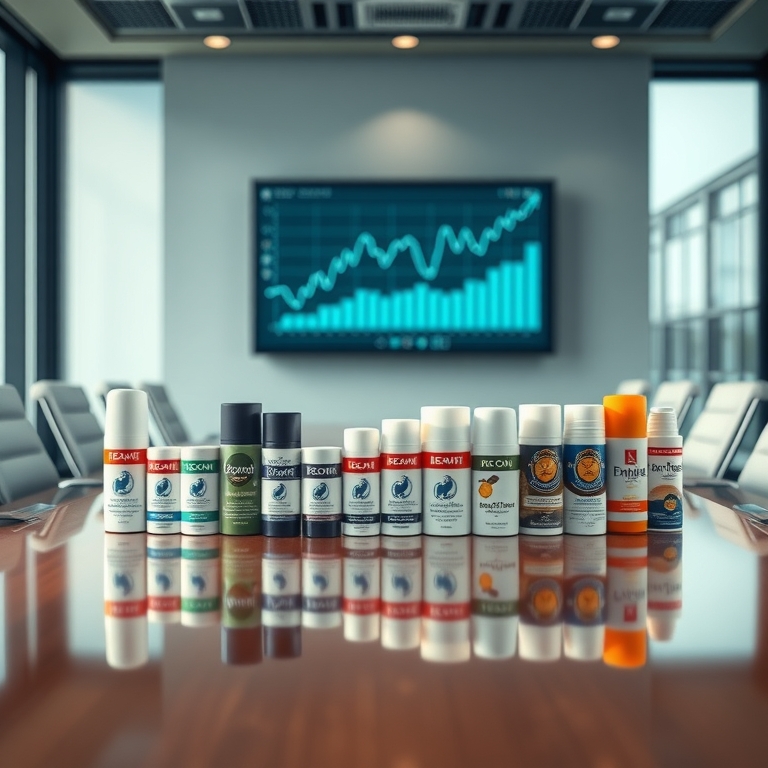In an unexpected development that has sent ripples through the personal care industry, the U.S. Food and Drug Administration (FDA) has issued a significant recall affecting several popular deodorant brands due to potential contamination concerns. This move underscores the critical importance of rigorous quality controls and the complexities manufacturers face in ensuring consumer safety in a highly competitive market.
The recall, announced earlier this week, involves multiple batches of deodorants that have been found to potentially contain harmful substances. According to the FDA’s detailed report, the decision was prompted by routine testing that revealed the presence of benzene, a known carcinogen, in certain products. Benzene is a chemical compound that, while common in industrial settings, poses serious health risks when individuals are exposed to it over a prolonged period. Its presence in personal care products, which are used daily by millions of people, is a significant cause for concern.
The brands affected by this recall are household names, trusted by consumers for their reliability and effectiveness. As such, this recall not only impacts the companies involved but also raises broader questions about supply chain integrity and consumer trust in the personal care sector. The FDA’s announcement has prompted swift responses from the companies implicated, each emphasizing their commitment to consumer safety and pledging to take immediate corrective action.
Industry experts suggest that the contamination may have occurred during the production process, where raw materials or packaging could have been compromised. The complexity of modern supply chains, often involving multiple suppliers and international manufacturing hubs, increases the risk of such oversights. This incident highlights the necessity for brands to invest in more stringent quality assurance measures and to maintain transparency with their consumers.
While the recall is a setback for the brands involved, it is not unprecedented in the industry. Similar incidents have occurred in the past, prompting companies to reevaluate their quality control processes and enhance their safety protocols. The deodorant market, which is valued at several billion dollars annually, is fiercely competitive, with brands continuously innovating to meet the evolving demands of health-conscious consumers. This recall could serve as a catalyst for broader industry reforms, encouraging companies to adopt more robust testing methods and to prioritize safety over speed in their production cycles.
Consumer reactions to the recall have been mixed. Some have expressed concern and disappointment, questioning how such a lapse could occur in well-established brands. Others have shown understanding, acknowledging the complexities of large-scale manufacturing and the efforts brands are making to rectify the situation. Social media platforms have become a hotbed for discussions, with consumers sharing their experiences and seeking advice on alternative products.
For retailers, the recall presents logistical challenges, as they work to remove affected products from shelves and manage customer queries. Many have issued statements reassuring customers of their commitment to providing safe products and have implemented return procedures for those who have purchased the recalled items. Retail analysts note that while such recalls can temporarily disrupt sales, the long-term impact largely depends on how effectively companies communicate and address the issue.
The FDA’s role in this scenario is crucial, as it not only enforces regulations but also educates both manufacturers and consumers about potential risks. This incident reinforces the agency’s importance in safeguarding public health and ensuring that companies adhere to the highest safety standards. The FDA has also been proactive in offering guidance to the affected companies, helping them navigate the recall process and minimize the risk of similar issues in the future.
In light of these events, industry stakeholders are calling for more collaborative efforts to enhance safety standards. This includes leveraging technology to improve traceability and accountability throughout the supply chain. Advances in digital solutions, such as blockchain and Internet of Things (IoT) devices, offer promising avenues for real-time monitoring and quality assurance, potentially preventing contamination before products reach consumers.
Looking ahead, the deodorant industry, like many others, faces the challenge of rebuilding consumer trust. Transparency and communication will be key in this endeavor, as companies strive to reassure their customers and demonstrate their commitment to safety and quality. It is likely that in the coming months, we will see increased scrutiny and possibly more regulatory measures aimed at preventing similar occurrences.
In conclusion, the FDA’s recall of deodorant brands over potential contamination concerns serves as a stark reminder of the ongoing challenges faced by the personal care industry. While the immediate focus is on addressing the contamination and ensuring consumer safety, the broader implications of this incident are likely to influence industry practices and regulatory policies for years to come. As consumers become increasingly vigilant about the products they use, it is imperative for brands to uphold the highest standards of quality and transparency to maintain their trust and loyalty.

Leave a Reply